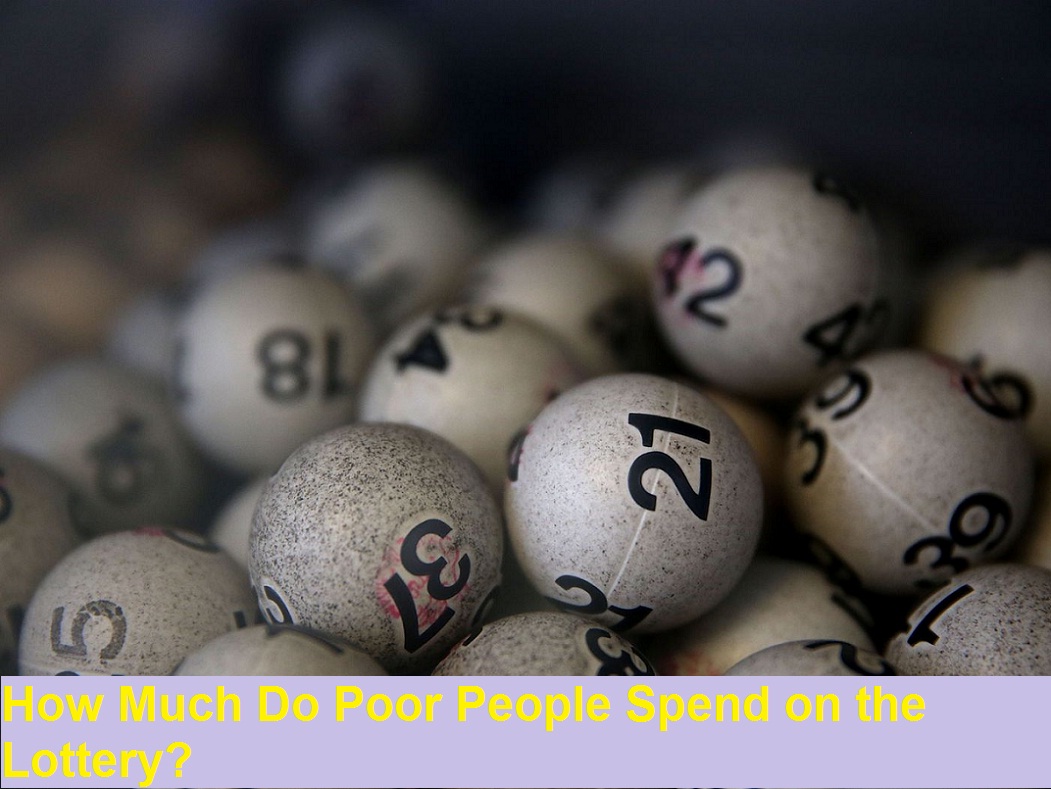Contents
How Much Do Poor People Spend on the Lottery?
The allure of the lottery has captured the imagination of people from all walks of life. From the prospect of instant wealth to the thrill of winning, it’s no wonder that lotteries continue to be popular. However, there is a common perception that poor people spend a significant portion of their income on lottery tickets. In this article, we will explore the question: How much do poor people spend on the lottery? We will delve into the factors that contribute to lottery spending among the less affluent and examine the impact it has on their financial well-being.
Understanding the Lottery
Before we dive into the spending habits of poor individuals, let’s first understand what the lottery is. Lotteries are games of chance where participants purchase tickets with the hope of winning a prize. These prizes can range from small cash amounts to life-changing jackpots. Lotteries are regulated by governments and often serve as a source of revenue for public projects such as education, infrastructure, and social welfare.
The Myth of Poor People and Lottery Spending
-
Exploring the Myth
It is a common misconception that poor people spend a significant portion of their income on lottery tickets. This myth has persisted over the years, fueled by anecdotes and sensationalized stories in the media. However, when we examine the data, a different picture emerges.
-
Analyzing Lottery Expenditure
Multiple studies have been conducted to determine the relationship between poverty and lottery spending. Contrary to popular belief, these studies consistently show that poor individuals spend less on the lottery compared to their wealthier counterparts. The reasons for this are multifaceted and can be attributed to a variety of factors.
Factors Influencing Lottery Spending Among the Poor
-
Hope and Escape
Lottery tickets offer a glimmer of hope for a better future, especially for those living in poverty. The dream of winning big can provide a temporary escape from the harsh realities of financial hardship. While this hope may seem irrational to some, it serves as a source of motivation and optimism for others.
-
Entertainment Value
For many individuals, purchasing a lottery ticket is a form of entertainment. It provides a brief moment of excitement and anticipation as they imagine what they could do with the potential winnings. This entertainment value is not exclusive to any socioeconomic group and can be found among people from all income levels.
-
Perceived Investment
Some individuals view buying lottery tickets as a form of investment, albeit a highly speculative one. They see it as an opportunity to turn a small amount of money into a life-changing sum. While the odds of winning are extremely low, the potential return on investment can be enticing, especially for those with limited financial resources.
-
Social Pressure and Norms
In certain communities, there may be social pressure to participate in the lottery. It can be seen as a shared experience or a way to bond with friends, family, or neighbors. The fear of missing out or being left behind can influence an individual’s decision to buy tickets, regardless of their financial situation.
Addressing the Concerns
-
The Impact on Financial Well-being
While lottery spending among the poor may not be as significant as commonly believed, it is still essential to address the concerns it raises. Education and financial literacy programs can play a crucial role in empowering individuals to make informed decisions about their money. By promoting financial literacy, we can help individuals understand the risks associated with excessive lottery spending and encourage them to focus on more sustainable financial practices.
-
Balancing Entertainment and Responsibility
Lotteries can continue to provide entertainment value for individuals across all income levels. However, responsible gambling practices should be promoted to ensure that people can enjoy the experience without jeopardizing their financial well-being. Setting a budget for lottery tickets and treating it as discretionary spending can help strike a balance between entertainment and financial responsibility.
Conclusion
The perception that poor people spend a significant portion of their income on the lottery is not supported by empirical evidence. While the allure of the lottery can be enticing, studies consistently show that poor individuals spend less on lottery tickets compared to their wealthier counterparts. It is important to address the concerns associated with excessive lottery spending through education, financial literacy, and responsible gambling practices. By promoting sustainable financial habits and empowering individuals to make informed decisions, we can help foster financial well-being for all.
FAQs: How much do poor people spend on the lottery
- Q: How much do poor people spend on the lottery?
- A: Contrary to popular belief, studies consistently show that poor individuals spend less on the lottery compared to their wealthier counterparts.
- Q: Why do poor people buy lottery tickets?
- A: Poor individuals may buy lottery tickets for various reasons, including hope, entertainment, perceived investment, and social pressures.
- Q: Can playing the lottery improve the financial situation of poor people?
- A: While winning the lottery can bring a significant financial windfall, it is not a reliable or sustainable solution for improving one’s financial situation.
- Q: Are there any alternatives to the lottery for poor individuals seeking financial stability?
- A: Building financial literacy, saving money, and seeking education and employment opportunities are more sustainable ways for individuals to achieve financial stability.
- Q: Do governments take any steps to address the concerns of excessive lottery spending among the poor?
- A: Many governments have implemented measures such as education programs and support services to address the concerns related to lottery spending among vulnerable populations.
- Q: Are there any support systems available for individuals who struggle with gambling addiction?
- A: Yes, various organizations and helplines provide support for individuals struggling with gambling addiction. These resources offer counseling, therapy, and guidance to those in need.

